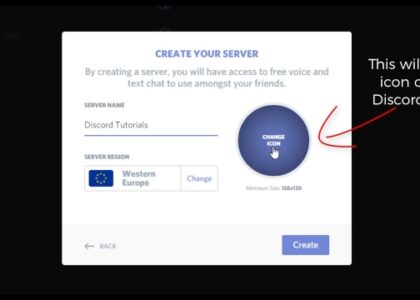Welcome to the world of studio management! As a photography studio owner, there’s so much to juggle – from capturing that perfect shot to keeping your clients happy and managing all the administrative tasks in between. It can sometimes feel overwhelming, but fear not! With the power of Customer Relationship Management (CRM), you can take your studio management skills to new heights.
CRM, short for Customer Relationship Management, is a versatile tool that can revolutionize the way you run your photography studio. By centralizing all your client information, photoshoot schedules, and communication in one place, CRM simplifies your workflow and ensures nothing falls through the cracks. But it doesn’t stop there! CRM goes beyond mere organization – it offers invaluable features like invoicing, client management, and much more.
Imagine effortlessly sending personalized invoices to your clients, tracking payments, and ensuring a smooth financial process. With CRM, you can bid farewell to spreadsheets and manual calculations, saving you time and energy. Meanwhile, its client management capabilities enable you to maintain detailed profiles for each client, track their preferences, and deliver exceptional customer service tailored to their needs.
In this article, we’ll guide you through the art of studio management with CRM at its core. Discover how CRM can streamline your operations, improve client relationships, and boost your studio’s success. Prepare to unlock new levels of efficiency, organization, and ultimately, focus more on what you love – capturing those breathtaking moments behind the lens. Let’s dive in!
Benefits of Using CRM for Studio Management
Running a photography studio involves juggling multiple tasks, from capturing stunning images to managing clients and handling invoices. In such a dynamic industry, it’s crucial to adopt efficient systems that streamline processes and maximize productivity. This is where Customer Relationship Management (CRM) software comes into play, revolutionizing studio management with its array of benefits.
Enhanced Client Management: With a CRM system tailored for photography studios, you can effortlessly organize client information, including contact details, preferences, and previous projects they’ve engaged in. This enables you to provide a personalized experience, catering to their unique needs and expectations. By centralizing client data, you can quickly retrieve essential information, ensuring efficient communication and enhancing overall client satisfaction.
Effortless Invoicing and Financial Management: Keeping track of invoices and managing finances can be time-consuming and overwhelming. However, with CRM software, this tedious task becomes a breeze. By automating the invoicing process, you eliminate the risk of human error and ensure timely payments, all while maintaining financial transparency. Additionally, comprehensive reporting features allow you to gain insights into profit margins, revenue streams, and other financial aspects essential for making informed business decisions.
Streamlined Workflow and Task Management: Studio management involves collaborating with various team members, such as photographers, editors, and assistants. A CRM system provides a centralized platform where you can assign and track tasks, ensuring a seamless workflow. By streamlining the entire process, each team member can access relevant information and updates, reducing miscommunication and increasing efficiency. This improves project coordination, leading to timely delivery of high-quality work and ultimately enhancing client satisfaction.
By utilizing CRM software for studio management, you can streamline operations, simplify client management, automate financial processes, and enhance overall productivity. Embracing CRM technology empowers photographers to focus on their artistic endeavors while building strong relationships with clients and creating memorable experiences.
Key Features of CRM for Studio Management
A CRM system designed specifically for studio management offers a range of powerful features that can streamline your workflow and help you excel in the competitive world of photography. Here are three key features that make CRM indispensable for studio management:
-
Client Management: With CRM, you can effortlessly organize and track all your client information in one central database. This includes contact details, shooting preferences, upcoming appointments, and past interactions. By maintaining a comprehensive client profile, you can provide personalized services, anticipate their needs, and build stronger relationships. CRM also enables you to segment your client base for targeted marketing campaigns, improving your chances of attracting more business.
-
Invoicing and Payments: Handling invoices and payments can be a time-consuming aspect of studio management. However, with CRM, you can automate these processes, saving valuable time and ensuring a seamless financial workflow. The system allows you to generate professional-looking invoices, track payment statuses, and send automated reminders for any overdue payments. By streamlining your invoicing and payment processes, you can improve cash flow and keep your studio running smoothly.

Workflow Automation: A CRM tailored for studio management offers workflow automation capabilities that eliminate manual tasks and boost efficiency. You can create customized workflows for various studio processes, such as appointment scheduling, image selection, album design, and product ordering. By automating these repetitive tasks, you can reduce errors, save time, and focus on delivering exceptional photography services to your clients. Workflow automation also enables you to collaborate seamlessly with your team, ensuring a smooth and synchronized studio operation.
In conclusion, CRM plays a vital role in mastering the art of studio management. Its key features such as client management, invoicing and payments, and workflow automation empower photographers to provide personalized services, improve financial processes, and enhance overall efficiency. By harnessing the capabilities of CRM, photographers can take their studio management to new heights and achieve greater success in the photography industry.
Best Practices for Implementing CRM in Photography Studios
When it comes to implementing CRM in photography studios, there are several best practices that can greatly enhance the efficiency and effectiveness of your studio management. By following these guidelines, you can ensure a seamless integration of CRM into your workflow, allowing you to streamline processes and provide excellent client management.
-
Define your Studio’s Goals: Before diving into CRM implementation, it is essential to clearly define your studio’s goals. Determine what you hope to achieve through the use of CRM, such as improved client communication, enhanced invoicing processes, or better project management. By having a clear understanding of your objectives, you can tailor your CRM system to meet your specific needs.
-
Data Organization: Proper data organization is key to successful CRM implementation. Take the time to clean and streamline your existing client data before integrating it into the CRM system. Categorize information such as client contact details, project histories, and invoicing records to ensure easy accessibility and efficient management within the CRM platform.
-
Train and Educate Staff: One of the most critical factors in CRM implementation is ensuring that your staff is well-trained and knowledgeable about the system. Host training sessions to familiarize employees with the CRM software, its features, and its benefits. Encourage regular use and provide ongoing support to address any concerns or questions that may arise. Investing in staff training will ultimately result in a more seamless and successful implementation.
By following these best practices, you can effectively leverage CRM in your photography studio to improve studio management, enhance client relationships, and streamline your overall workflow. Implementing CRM in a thoughtful and strategic manner will undoubtedly yield long-term benefits for your studio and its operations.





